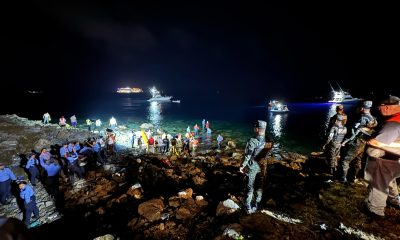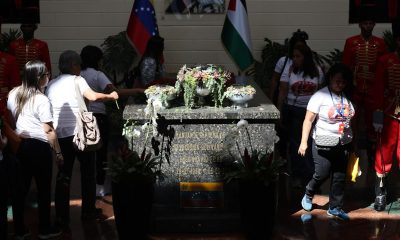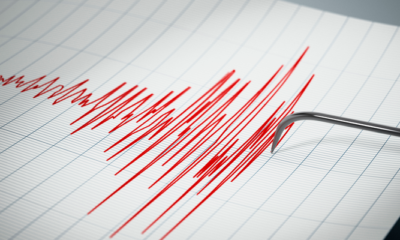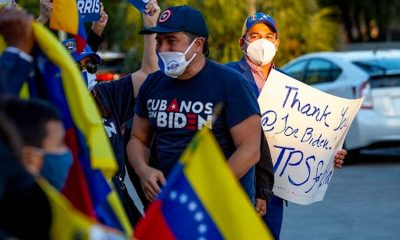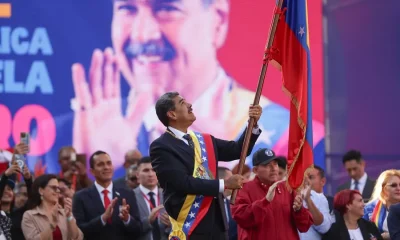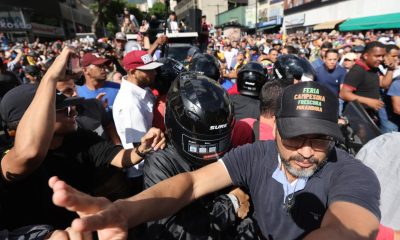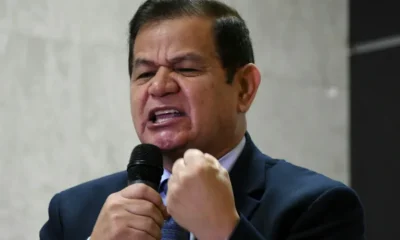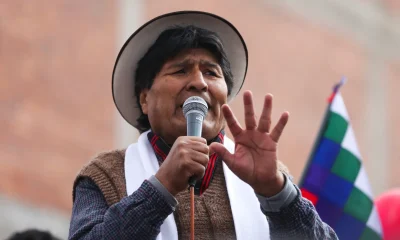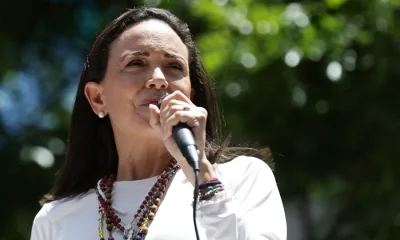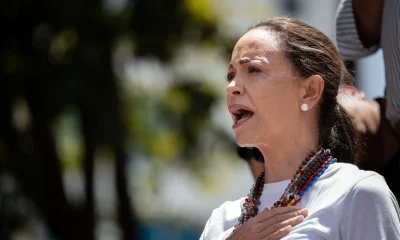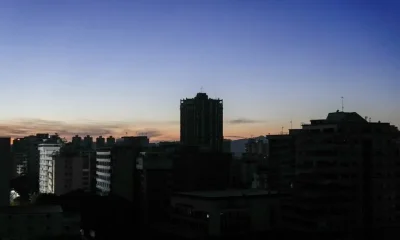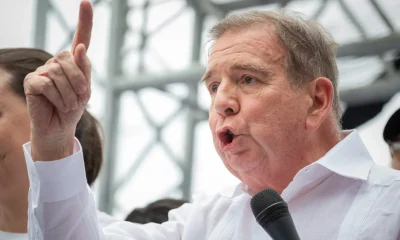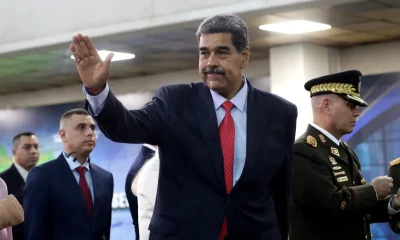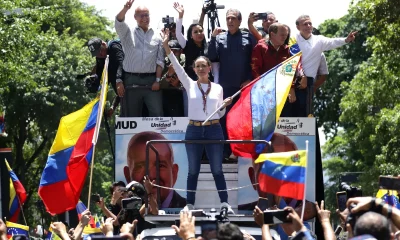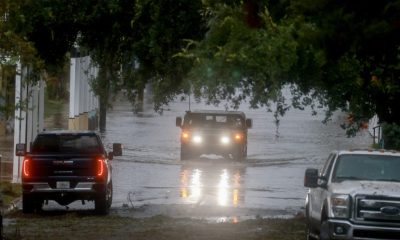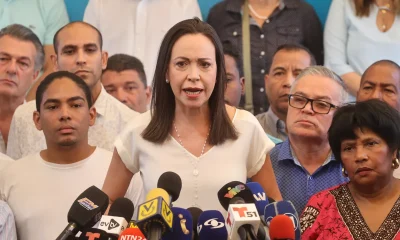International
The presidential elections of Venezuela, under the critical gaze of the international community
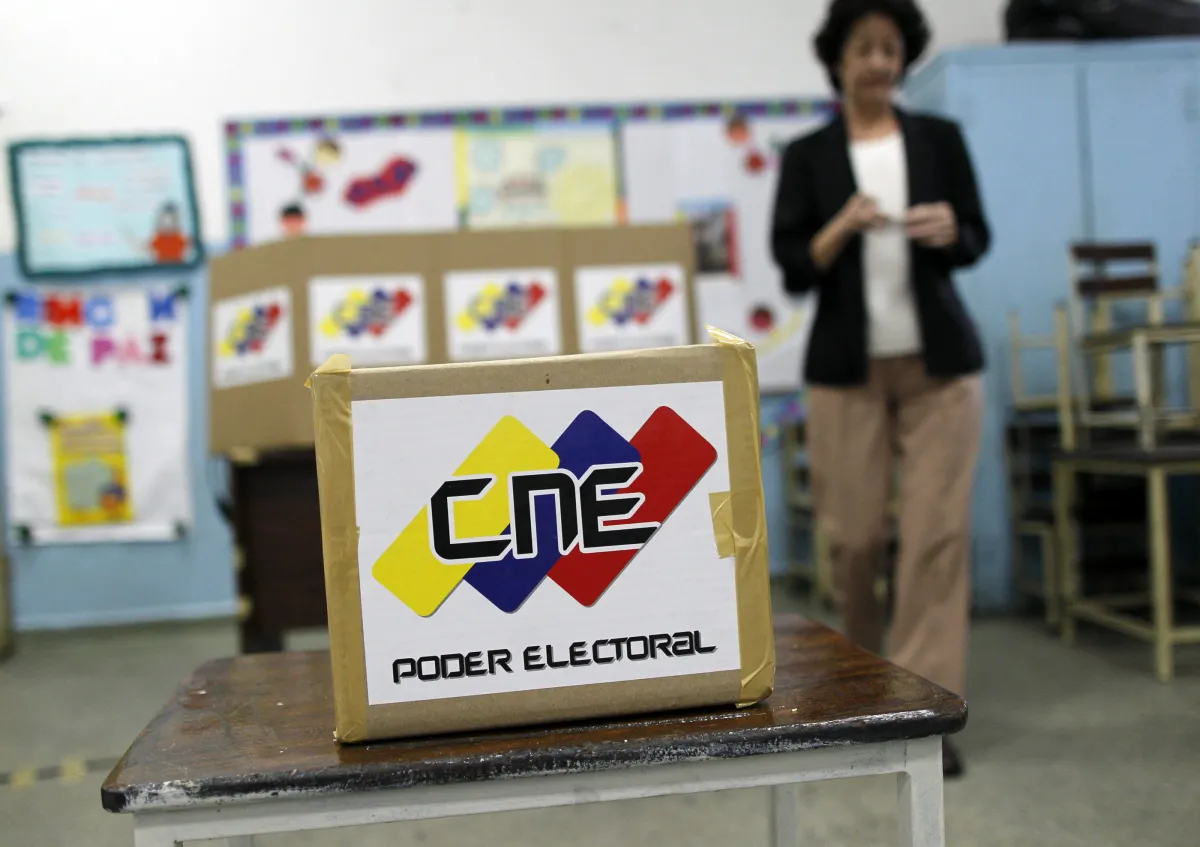
Venezuela has been in the spotlight of the international community, especially since March, when the majority opposition denounced obstacles to register its presidential candidate of July 28, Corina Yoris.
This raised a swell of criticism to which leftist leaders close to the Government were joined, such as the Colombian president, Gustavo Petro, or the Brazilian, Luiz Inácio Lula da Silva.
Petro described the disqualifications of opponents as an “anti-democratic coup,” and Lula described as “serious” and without explanation “political or legal” the impediments to register Yoris, chosen by the alliance in the face of the sanction that weighs on María Corina Machado – winner of the anti-Chavista primaries-, which prevents her from occupying public positions of popular election until 2036.
Likewise, former Uruguayan President José ‘Pepe’ Mujica recently expressed that the situation in Venezuela is “unfortunate”, where “it seems that they play democracy, but they do not play democracy.”
Meanwhile, the president of Mexico, Andrés Manuel López Obrador, in a kinder, but, above all, more ambiguous tone, asked that Venezuela be allowed to vote “in freedom,” a reaction that was well received by both the Government and the opposition.
According to internationalist Félix Arellano, these positions show an “important change” in that “Latin American left” that, to a large extent, has supported the Caribbean country with a “mechanical and uncritical solidarity.”
“These statements by Pepe Mujica, Petro and Lula have a new look at the Venezuelan situation,” Arellano said.
These questions, he said, mark “more distances” from the Government “from the left-wing parties and governments in the world.”
For the expert, the “conjuncture is not proving favorable” to the Executive, because “there is an increasingly strong crusade of the international community in favor of competitive conditions” for the presidential elections.
“At this moment, it seems that only Cuba, Nicaragua and, to some extent, Mexico, are more committed to the Venezuelan Government and, obviously, actors of world geopolitics, such as Russia and China,” he said.
Arellano believes that a new distancing would play against Venezuela, which “has shown interest in maintaining some minimum of negotiation with the international community, particularly with the United States” due to “the issue of sanctions,” whose relief allowed to expand its cooperation with energy companies around the world.
The extension of a few hours to the deadline to register candidates granted by the National Electoral Council (CNE) to the PUD, which presented to the internationalist Edmundo González Urrutia, could, according to Arellano, show that “there is concern about the position of the international community.”
In addition to Colombia and Brazil, Argentina, Uruguay, Costa Rica, Ecuador, Guatemala, Paraguay, Peru and the United States. The United States, as well as the Organization of American States (OAS) and the European Union (EU), expressed their concern about the development of the electoral process.
For Chavista deputy Roy Daza, there is “disinformation from some government spokespersons” and “personalities from the Latin American and European political world.”
According to he told EFE, “an attempt is made to manipulate, with lies and falsehoods, what is happening in Venezuela,” where the process of applying candidates “was fulfilled,” with the registration of 13 candidates and the participation of 37 parties.
In his opinion, Lula has a “biased information,” while Petro has lent himself “to a hoax.”
However, Daza is confident that this situation will not affect Venezuela’s relations with Latin American countries, which “are maintained and developed very efficiently.”
He announced that the commission will send communications to regional parliaments and the US Congress, in defense of the electoral system and in rejection of “interference.”
President Nicolás Maduro criticized that “right-wing” and “cowardly left” governments try to “intervene in Venezuela’s internal affairs.”
Meanwhile, the head of Parliament, Jorge Rodríguez, urged Petro, Lula and Mujica to put “their opinions wherever they fit.”
Arellano warned that, with these reactions, “a favorable environment is not created” and distances can be increased, which has consequences, he added, on economic relations and political support.
International
U.S. Senate Rejects Budget, Bringing Government Closer to Shutdown Amid DHS Dispute

The U.S. Senate voted on Thursday against a budget proposal in a move aimed at pressuring changes at the Department of Homeland Security (DHS), following the killing of two civilians during a deployment of immigration agents in Minneapolis.
All Senate Democrats and seven Republican lawmakers voted against the bill, which requires 60 votes to advance, pushing the country closer to a partial government shutdown that would cut funding for several agencies, including the Pentagon and the Department of Health.
The rejection came as Senate leaders and the White House continue negotiations on a separate funding package for DHS that would allow reforms to the agency. Proposed measures include banning Immigration and Customs Enforcement (ICE) agents from wearing face coverings and requiring them to use body-worn cameras during operations.
The vote took place just hours after President Donald Trump said he was “close” to reaching an agreement with Democrats and did not believe the federal government would face another shutdown, following last year’s record stoppage.
“I don’t think the Democrats want a shutdown either, so we’ll work in a bipartisan way to avoid it. Hopefully, there will be no government shutdown. We’re working on that right now,” Trump said during a Cabinet meeting at the White House.
International
Trump Says Putin Agreed to One-Week Halt in Attacks on Ukraine Amid Extreme Cold

U.S. President Donald Trump said on Thursday that he secured a commitment from Russian President Vladimir Putinto halt attacks against Ukraine for one week, citing extreme weather conditions affecting the region.
“Because of the extreme cold (…) I personally asked Putin not to attack Kyiv or other cities and towns for a week. And he agreed. He was very pleasant,” Trump said during a Cabinet meeting broadcast by the White House.
Trump acknowledged that several advisers had questioned the decision to make the call.
“A lot of people told me not to waste the call because they wouldn’t agree. And he accepted. And we’re very happy they did, because they don’t need missiles hitting their towns and cities,” the president said.
According to Trump, Ukrainian authorities reacted with surprise to the announcement but welcomed the possibility of a temporary ceasefire.
“It’s extraordinarily cold, record cold (…) They say they’ve never experienced cold like this,” he added.
Ukrainian President Volodymyr Zelensky later commented on the announcement, expressing hope that the agreement would be honored.
International
Storm Kristin Kills Five in Portugal, Leaves Nearly 500,000 Without Power

Storm Kristin, which battered Portugal with heavy rain and strong winds early Wednesday, has left at least five people dead, while nearly half a million residents remained without electricity as of Thursday, according to updated figures from authorities.
The revised death toll was confirmed to AFP by a spokesperson for the National Emergency and Civil Protection Authority (ANPEC). On Wednesday, the agency had reported four fatalities.
Meanwhile, E-Redes, the country’s electricity distribution network operator, said that around 450,000 customers were still without power, particularly in central Portugal.
Emergency services responded to approximately 1,500 incidents between midnight and 8:00 a.m. local time on Wednesday, as the storm caused widespread disruptions.
The Portuguese government described Kristin as an “extreme weather event” that inflicted significant damage across several regions of the country. At the height of the storm, as many as 850,000 households and institutions lost electricity during the early hours of Wednesday.
Several municipalities ordered the closure of schools, many of which remained shut on Thursday due to ongoing adverse conditions.
Ricardo Costa, regional deputy commander of the Leiria Fire Brigade, said residents continue to seek assistance as rainfall persists.
“Even though the rain is not extremely intense, it is causing extensive damage to homes,” he noted.
In Figueira da Foz, a coastal city in central Portugal, strong winds toppled a giant Ferris wheel, underscoring the severity of the storm.
-

 Central America4 days ago
Central America4 days agoGuatemala seizes over a ton of cocaine hidden in flour at Pacific port
-

 International4 days ago
International4 days agoHistoric snowstorm paralyzes Toronto after 60 centimeters of snow
-

 Central America3 days ago
Central America3 days agoGuatemala Police Arrest Prison Guard Caught in the Act of Extortion
-

 Central America3 days ago
Central America3 days agoHonduras swears in conservative president Asfura after disputed election
-

 Central America3 days ago
Central America3 days agoBukele leads public trust rankings as UCA survey highlights gains in security
-

 International4 days ago
International4 days agoSpain’s irregular migrant population rises to 840,000, study finds
-

 International2 days ago
International2 days agoFootball Fan Killed in Clashes After Colombian League Match
-

 International3 days ago
International3 days agoWinter Storm Fern Leaves 30 Dead and Over One Million Without Power Across the U.S.
-

 Central America2 days ago
Central America2 days agoGuatemala President Says Starlink Terminal Found Inside Prison
-

 Sin categoría3 days ago
Sin categoría3 days agoEight Killed in Series of Armed Attacks in Ecuador’s Manabí Province
-

 International3 days ago
International3 days agoDoomsday clock moves to 85 seconds before midnight amid rising global risks
-

 International4 days ago
International4 days agoRights group says nearly 6,000 killed in Iran protest crackdown
-

 International2 days ago
International2 days agoRubio Says U.S. Could Participate in Follow-Up Russia-Ukraine Talks
-

 International2 days ago
International2 days agoMissing Spanish Sailor Rescued After 11 Days Adrift in Mediterranean
-

 International3 days ago
International3 days agoSpain approves plan to regularize up to 500,000 migrants in Historic Shift
-

 Sin categoría3 days ago
Sin categoría3 days agoEl Salvador Launches Fourth Year of Ocean Mission to Protect Marine Ecosystems
-

 International4 days ago
International4 days agoVenezuela frees at least 80 political prisoners, NGO says
-

 International4 days ago
International4 days agoEU launches new probe into X over AI-generated fake nude images
-

 International21 hours ago
International21 hours agoU.S. Senate Rejects Budget, Bringing Government Closer to Shutdown Amid DHS Dispute
-

 International4 days ago
International4 days agoSevere winter storm grips U.S., leaves multiple dead as extreme cold persists
-

 International4 days ago
International4 days agoFrance debates ban on social media for children under 15
-

 International21 hours ago
International21 hours agoStorm Kristin Kills Five in Portugal, Leaves Nearly 500,000 Without Power
-

 International21 hours ago
International21 hours agoTrump Says Putin Agreed to One-Week Halt in Attacks on Ukraine Amid Extreme Cold
-

 International21 hours ago
International21 hours agoMan Arrested After Vehicle Crashes Into Jewish Institution in Brooklyn































